Managing your money wisely while traveling can make a huge difference. Did you know that understanding the exchange rate can save you up to 10% on your expenses? This is why knowing the ins and outs of the local currency is essential.
The official currency in this region is the Córdoba (NIO). While USD is widely accepted, having local cash ensures smooth transactions, especially for smaller purchases or tipping. Using a debit card or credit card can be convenient, but watch out for foreign transaction fees.
Planning ahead can help you avoid poor rates at airports or hotels. Tools like Wise offer real-time currency exchange rates, ensuring you get the best value for your money. Whether you’re withdrawing cash from an ATM or paying with a card, being informed saves you time and money.
Ready to make the most of your trip? Let’s dive into the details of managing your finances like a pro.
Understanding Nicaragua’s Currency Basics
Handling local money efficiently can enhance your travel experience. The official currency here is the Nicaraguan Córdoba (NIO). It’s essential to know its features and history to make the most of your trip.
The Nicaraguan Córdoba Explained
The Córdoba comes in both coins and banknotes. Denominations include 10, 20, 50, 100, 200, and 500 Córdobas. Banknotes feature iconic landmarks like the Granada Cathedral and Momotombo Volcano, making them visually unique.
Recent upgrades have introduced polymer banknotes, which are more durable and harder to counterfeit. This ensures safer transactions for both locals and tourists.
History and Evolution of the Currency
The Córdoba has a rich history. It replaced the Nicaraguan peso in 1912, introduced by the Banco Central de Nicaragua. Over time, it has evolved to meet modern needs, including the shift to polymer materials.
In 1955, the exchange rate was adjusted to 7 Córdobas per U.S. dollar. This change simplified the previous multiple-rate system, making transactions more straightforward.
Understanding these basics helps you handle cash and cards with confidence. Whether you’re paying at a market or withdrawing from an ATM, knowing the currency ensures smooth financial interactions.
Exchange Rates and Currency Conversion Insights
Understanding exchange rates can save you money and stress during your travels. Whether you’re withdrawing cash or using a card, knowing how to get the best rate ensures you maximize your travel funds.
Mid-Market Rate vs. Offered Rates
The mid-market rate is the real exchange rate used by banks and financial institutions. It’s the midpoint between the buy and sell prices of a currency. However, when you exchange money at kiosks or shops, the rate offered often includes fees or markups.
For example, if the mid-market rate for USD/NIO is 36.5, you might only get 35.5 at an exchange shop. This difference can add up, especially for larger transactions. Always verify the true rate before exchanging your currency.
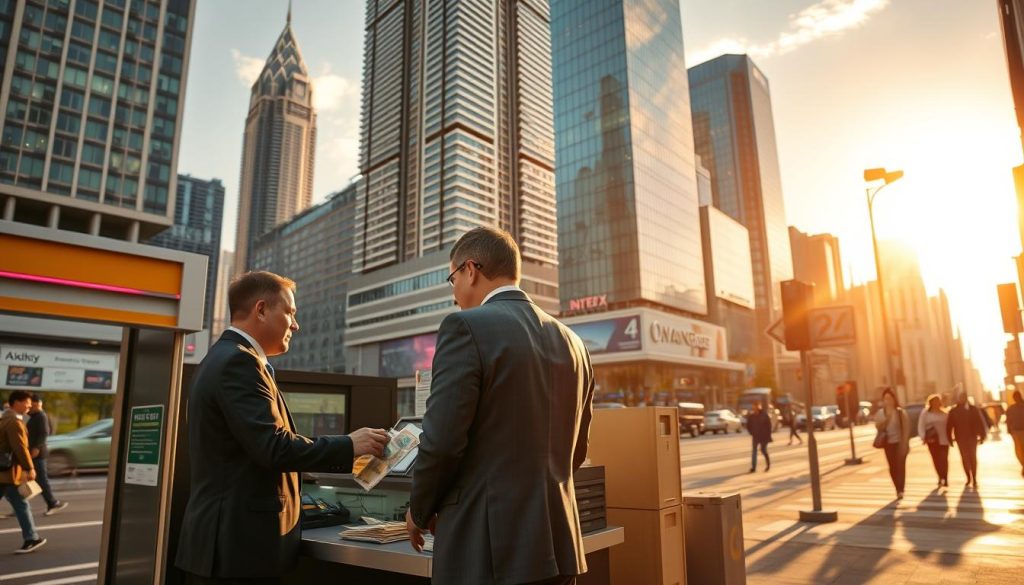
Tracking Live USD/NIO Rates
Using trusted tools like Wise or XE can help you track live exchange rates. These platforms update every few minutes, giving you accurate data to compare with quoted rates. This way, you can avoid overpaying for conversion services.
Here’s how to stay informed:
- Check live rates before exchanging money.
- Compare rates at banks, ATMs, and exchange shops.
- Use apps to calculate costs in real-time.
By staying informed, you can make smarter financial decisions and save on your trip.
Pre-Trip Currency Planning and Exchange Tips
Smart financial planning before your trip can save you time and money. Exchanging your currency ahead of time ensures you’re prepared for any situation. Here’s how to make the most of your pre-trip planning.
Exchanging USD for NIO Ahead of Time
Getting your hands on the local currency before you leave is a smart move. Exchanging USD for NIO at your local bank or a trusted exchange service often offers better rates and lower fees compared to airport kiosks.
For example, using a travel debit card like Wise can provide low-cost conversions. These cards often use the mid-market rate, saving you money on every transaction.
Avoiding Airport Exchange Pitfalls
Airport exchange services are convenient but often come with higher fees and less favorable rates. By planning ahead, you can avoid these unnecessary costs.
Research local rates online and compare them with what you’re offered. This way, you’ll know exactly how much your money is worth and where to get the best deal.
Here are some quick tips:
- Exchange a small amount of cash before your trip for immediate needs.
- Use a travel debit card for low-cost withdrawals abroad.
- Always check the exchange rate before making a transaction.
With these steps, you’ll start your trip on the right financial foot.
Using Debit and Credit Cards in Nicaragua
Choosing the right payment methods can make your trip smoother and more cost-effective. Debit and credit cards are increasingly accepted in shops, restaurants, and hotels, especially in urban and tourist areas. However, carrying some cash remains essential for smaller purchases or tipping.
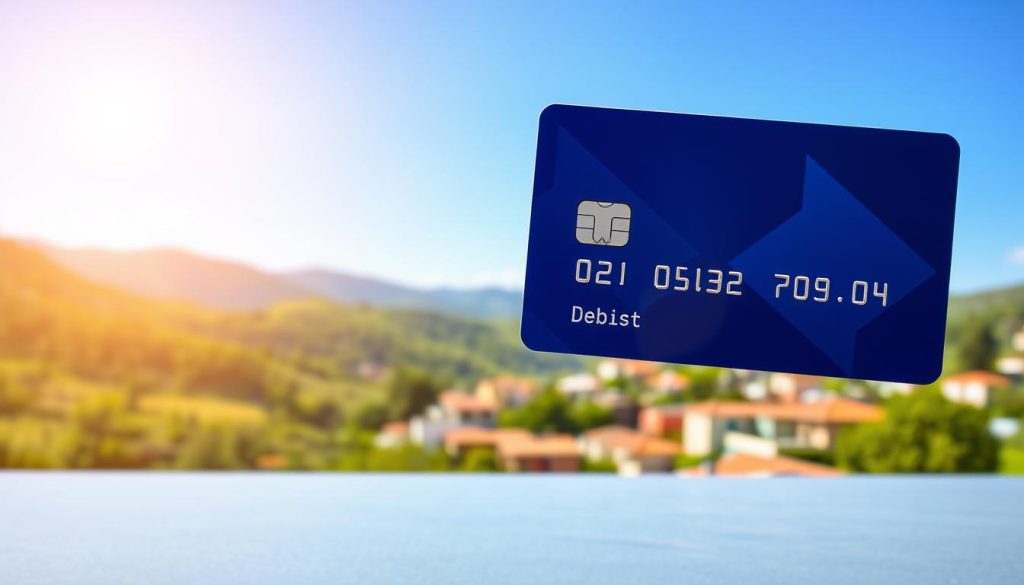
Benefits of a Travel Debit Card
Travel debit cards, like the Wise Multi-Currency Card, offer several advantages. They allow you to hold multiple currencies and provide competitive exchange rates. This means you can avoid high foreign transaction fees often charged by traditional banks.
For example, using a Wise card lets you convert USD to NIO at the mid-market rate, saving you money on every transaction. Additionally, these cards often come with low or no fees for ATM withdrawals, making them a convenient option for accessing cash.
Here’s why a travel debit card is a smart choice:
- Low fees: Avoid unnecessary charges on every purchase or withdrawal.
- Convenience: Use one card for multiple currencies without needing to carry large amounts of cash.
- Security: Protect your money with features like instant card freezing if it’s lost or stolen.
While cards are widely accepted, having multiple payment methods ensures you’re prepared for any situation. A travel debit card combined with some local cash is the perfect balance for a stress-free trip.
Navigating Cash Withdrawals and Local Transactions
Accessing cash and managing small transactions can make your trip smoother and more enjoyable. Whether you’re withdrawing money from an ATM or paying for a meal, having the right amount of local currency ensures you’re prepared for any situation.
Finding Reliable ATMs
Locating secure ATMs is essential for hassle-free cash access. In major cities like Managua, ATMs are widely available and often operate 24/7. Look for machines in well-lit, public areas, such as banks or shopping centers, to minimize risks.
Most ATMs accept international cards like Visa and Mastercard. However, some may charge a fee for withdrawals. To avoid unnecessary costs, use ATMs affiliated with major banks such as BDF or Ficohsa, which often have lower fees.
“Always check the screen to ensure transactions are processed in NIO, not your home currency. Dynamic currency conversion can lead to higher fees.”
Preparing Cash for Tipping and Small Purchases
Carrying local cash is especially useful for small purchases and tipping. Many vendors, especially in rural areas, may not accept cards. Having coins and smaller denominations ensures you’re ready for these situations.
Here’s a quick guide to managing your cash:
- Withdraw enough for daily needs but avoid carrying large amounts.
- Keep smaller bills for tipping and minor purchases.
- Use a debit card with low withdrawal fees to minimize costs.
| Bank | Withdrawal Limit | Transaction Fee |
|---|---|---|
| BDF | $500 per transaction | $6 |
| Ficohsa | $1,000 daily | $5 |
| Banco Avanz | $1,500 daily | $4 |
By following these tips, you can handle cash and transactions with ease, ensuring a stress-free travel experience.
Nicaragua: Ultimate Travelers Guide to Currencies & Payments
Efficiently managing your finances while traveling ensures a stress-free and enjoyable experience. Combining cash and card payments offers flexibility, allowing you to adapt to different situations. Here’s how to make the most of your money during your trip.
Balancing Cash and Card Payments
Using both cash and cards is a smart way to handle expenses. Cards are convenient for larger purchases, while cash is essential for smaller transactions or tipping. A travel debit card can help you avoid high foreign transaction fees, making it a cost-effective option.

Monitoring Exchange Rates
Keeping an eye on the exchange rate ensures you get the best value for your money. Use apps like Wise or XE to track live rates and compare them with what you’re offered. This way, you can time your currency conversions to maximize savings.
“Always verify the exchange rate before making a transaction to avoid hidden fees.”
Avoiding Hidden Fees
Hidden fees can quickly add up, especially with ATM withdrawals or card transactions. To minimize costs, use ATMs affiliated with major banks and check for any additional charges. Travel debit cards often offer lower fees, making them a reliable choice.
Practical Steps for Effective Management
Here’s a quick guide to managing your currency efficiently:
- Carry a mix of cash and cards for flexibility.
- Monitor live exchange rates to time your conversions.
- Use travel debit cards to avoid high fees.
- Withdraw cash in local currency to get better rates.
By following these strategies, you can handle your money with confidence, ensuring a smooth and enjoyable travel experience.
Exploring the Best Places to Exchange Currency in Nicaragua
Finding the best places to exchange your money can make your trip smoother and more cost-effective. Whether you’re looking for the best exchange rate or a reliable provider, knowing where to go ensures you get the most value for your cash.
City centers often offer better deals compared to airport kiosks. Local exchange offices in areas like Managua or Granada typically provide more competitive rates and lower fees. This is because they cater to both locals and tourists, ensuring fair pricing.
When choosing a provider, look for reputable money changers with clear credentials. Avoid unusual or inflated rates by comparing quotes from multiple sources. Always verify that you’re receiving genuine banknotes to ensure a secure transaction.
If you prefer not to carry large amounts of cash, consider using a travel card. These cards allow you to hold multiple currencies and often offer better exchange rates than traditional methods. They’re a convenient alternative for frequent travelers.
Here are some tips for a smooth exchange experience:
- Compare rates at multiple locations before exchanging your money.
- Verify the credentials of the exchange provider to ensure authenticity.
- Use a travel card to minimize fees and maximize convenience.
By following these steps, you can confidently manage your currency needs and focus on enjoying your trip.
Cost-Saving Tips for Currency Conversion and Payments
Saving money on currency exchanges can stretch your travel budget further. Small differences in exchange rates and fees can add up, so planning ahead is key. Here’s how to make the most of your money while avoiding unnecessary costs.
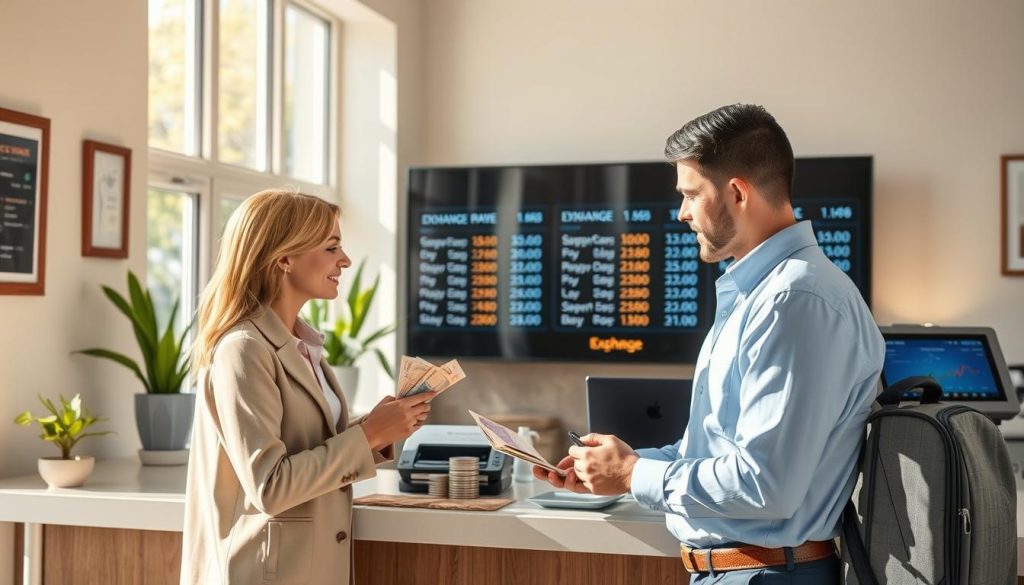
Minimizing Conversion Fees
When converting currency, even slight variations in the rate can impact your budget. For example, a 1% difference on a $500 exchange could cost you an extra $5. To avoid this, compare providers and choose one with transparent fees.
Using a travel card like Wise can help. These cards often use the mid-market exchange rate, saving you money on every transaction. They also minimize ATM fees, making them a cost-effective option.
Here are some practical strategies to reduce fees:
- Exchange a small amount of cash before your trip for immediate needs.
- Use a travel card for low-cost withdrawals abroad.
- Always check the exchange rate before making a transaction.
By following these tips, you can handle your currency needs efficiently and focus on enjoying your trip.
Safety Tips for Handling Transactions and Avoiding Scams
Staying safe with your money during your trip is just as important as managing it wisely. Scams and fraud can happen anywhere, so being vigilant ensures your finances remain secure. Here’s how to protect yourself while handling cash and cards.
Verifying Exchange Providers and ATMs
When exchanging currency, always choose reputable providers. Look for established banks or licensed exchange offices. Avoid street vendors or unauthorized kiosks, as they may offer poor rates or counterfeit bills.
Before using an ATM, check for signs of tampering. Skimming devices can steal your card information. Stick to machines in well-lit, secure locations, such as banks or shopping centers. Always verify that transactions are processed in NIO to avoid dynamic currency conversion fees.
“Always double-check the exchange rate and fees before finalizing a transaction to avoid hidden costs.”
Avoiding Airport Exchange Pitfalls
Airport exchange services are convenient but often come with higher fees and less favorable rates. If you must use them, exchange only a small amount for immediate needs. For better deals, wait until you reach the city center.
Tips for Safe Transactions
Here are some practical steps to keep your money safe:
- Use ATMs inside banks or secure locations.
- Cover the keypad when entering your PIN to prevent theft.
- Carry only the cash you need for the day.
- Notify your bank of your travel plans to avoid card blocks.
| Provider | Safety Tips |
|---|---|
| Banks | Use ATMs inside bank branches for added security. |
| Exchange Offices | Verify credentials and compare rates before exchanging. |
| Airport Kiosks | Exchange only small amounts to avoid high fees. |
By following these tips, you can handle your currency safely and focus on enjoying your trip without worry.
Conclusion
Being informed about your financial options can transform your travel experience. Understanding the local currency, tracking the exchange rate, and choosing the right payment methods ensures you’re prepared for any situation.
Pre-trip planning, using a travel card, and exchanging money wisely can save you from unnecessary fees. Always verify the rate and avoid scams by sticking to trusted providers.
Carry a mix of cash and cards for flexibility. Use tools like Wise to monitor live exchange rates and maximize your budget. Staying informed and vigilant protects your finances and lets you focus on enjoying your journey.
Prepare wisely, manage your currency smartly, and make the most of your adventure!
The above is subject to change.
Check back often to TRAVEL.COM for the latest travel tips and deals.
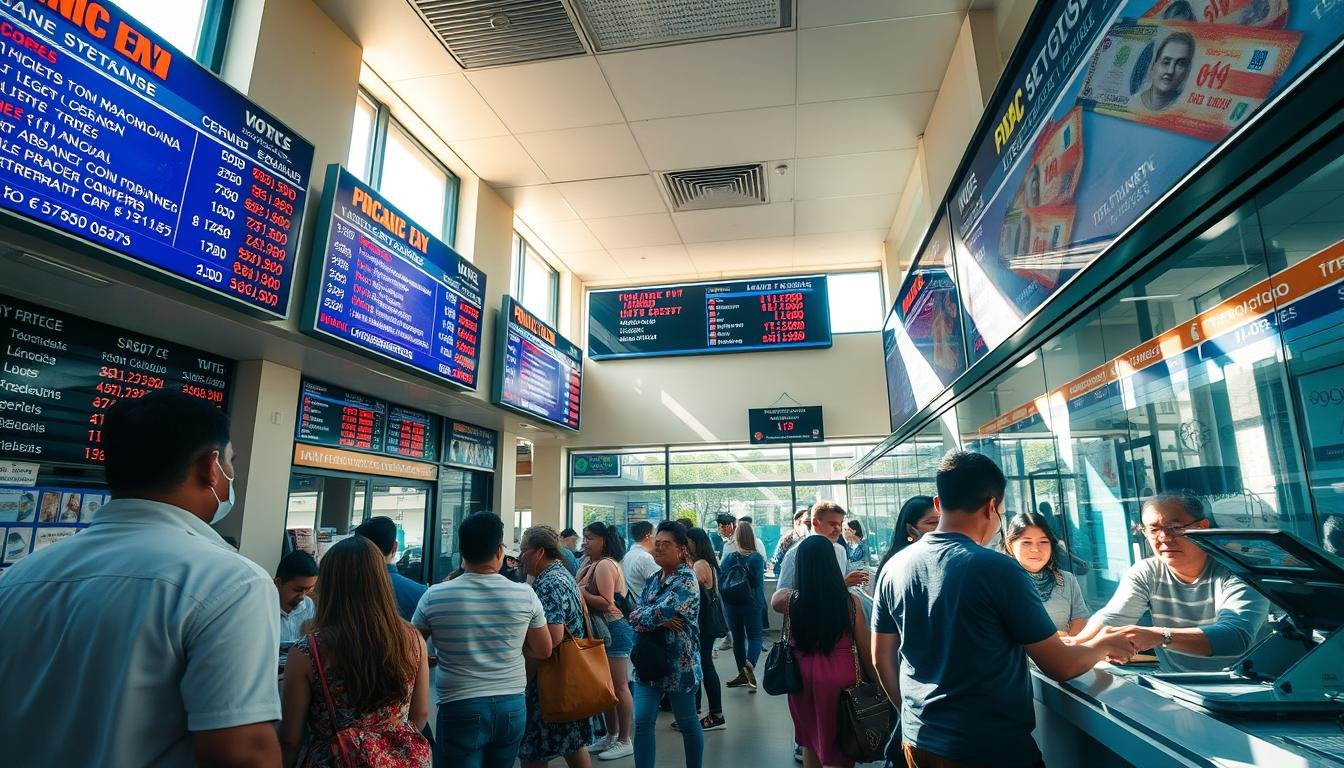




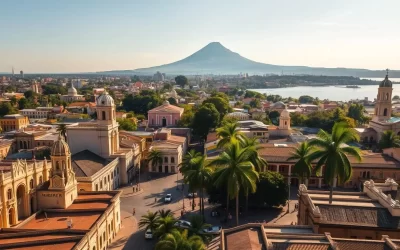

0 Comments